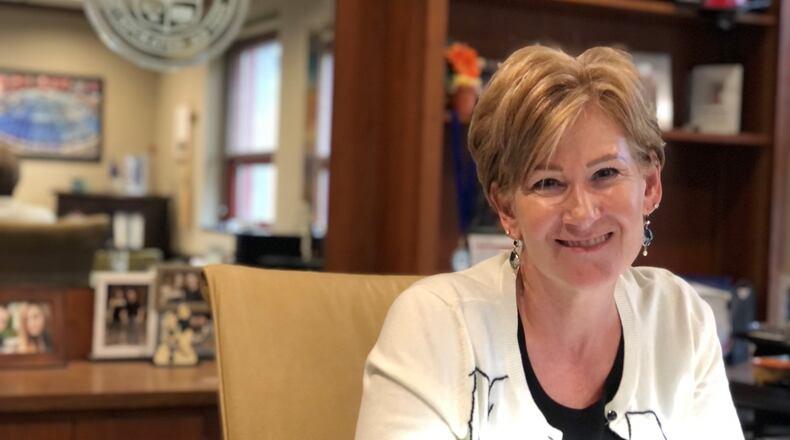“We will never have funding like this opportunity again,” she said.
Dayton’s communities of color were especially hit hard by the pandemic and historically have seen less investment and fewer amenities in their neighborhoods, Dickstein said.
She said the city wants to ensure disenfranchised areas in particular benefit from the federal aid, and the goal is for an equitable recovery from the COVID-19 public health and economic crisis.
Dayton and local governments across the nation have been awarded billions of dollars in assistance from the American Rescue Plan Act, which Congress approved and President Joe Biden signed earlier this year.
Dayton received half of its funding in May ($69 million) and will receive the other half next year.
The U.S. Department of the Treasury says local governments can use the money for public health expenses, public sector revenue replacement, economic assistance, essential worker pay and water, sewer and broadband infrastructure.
Dayton City Commission on Wednesday night approved an informal resolution that spells out how it proposes to use its funding.
The city has developed criteria for evaluating potential projects and investments and has prioritized racial equity and inclusion, impactful community outcomes, community partnerships to leverage resources, synergy with other projects, environmental sustainability and city commission priorities.
The city also is looking for one-time investments, since this is a one-time source of funding.
The city’s relief funding focus areas will be neighborhood investments, amenities, major catalytic projects, city projects, community investments and “external awards,” said City Manager Dickstein.
Neighborhood investments could include blight removal or sidewalk improvements, she said, while amenities could be new parks, playgrounds, splash pads, outdoor exercise facilities or programming.
Catalytic projects could include financial support to help expand or develop minority-owned businesses, Dickstein said, and city projects might be facilities upgrades.
Dickstein said dismantling institutionalized racism has been an important conversation taking place in the community, and she hopes the city can use this funding to help bolster and support minority-owned businesses.
Community investments could include funds for new housing, affordable housing, home repairs and home enhancements to help people age in place, Dickstein said.
External awards could go toward sectors heavily impacted by COVID-19, like tourism and hospitality, or efforts to combat the virus.
Dayton City Commissioner Darryl Fairchild said the pandemic exposed racial disparities in the community, and he thinks these funding priorities will help address those issues.
“I think this is the right framework,” he said.
The city expects it will need some funding to replace lost income tax revenue stemming from the pandemic, officials say.
Future income tax losses are possible if people continue to work from home and state lawmakers change how they are taxed, city officials say.
“There is a great need but there are great threats out there on the horizon and we have to be sure we can manage through those threats,” said Dayton City Commissioner Chris Shaw. “This is not an unlimited funding source ― we need to use it effectively and efficiently.”
The city expects to use an existing Community and Neighborhood Development Advisory Board to evaluate proposals.
The board reviews Community Development Block Grant (CDBG) discretionary funding from the U.S. Department of Housing and Urban Development.
Dayton is still waiting for final funding guidance from the Treasury department, but the city expects to issue notices of funding to invite proposals, possibly in late summer, officials said.
The city has until 2024 to spend the rescue plan funding.
The funding will help the city manage some of the catastrophic challenges it has had in the last year and a half, said Dayton City Commissioner Jeffrey Mims Jr.
About the Author




